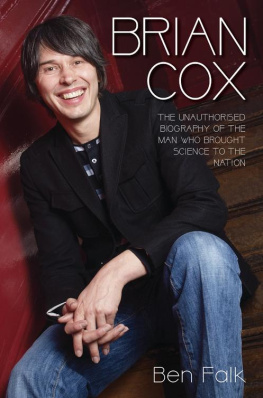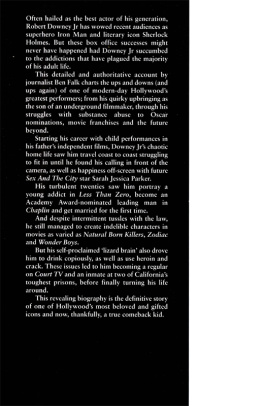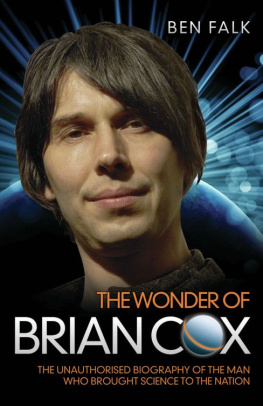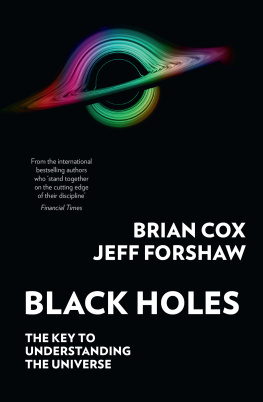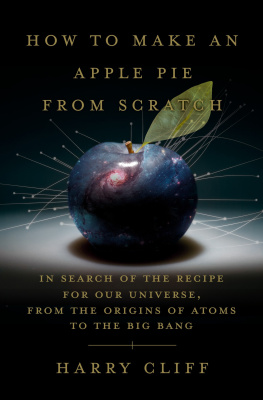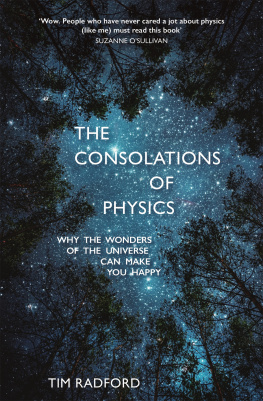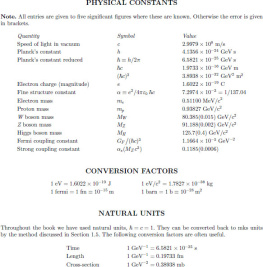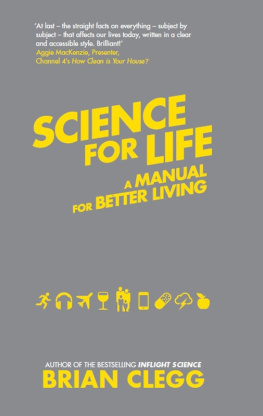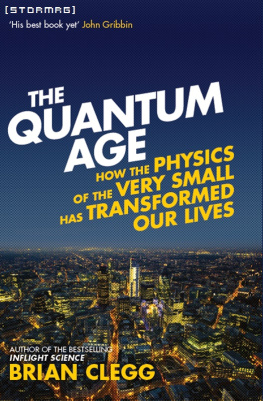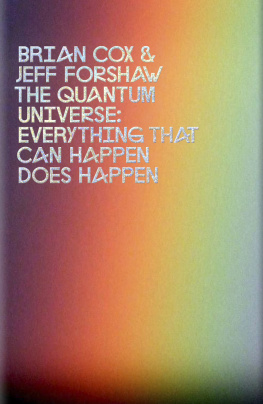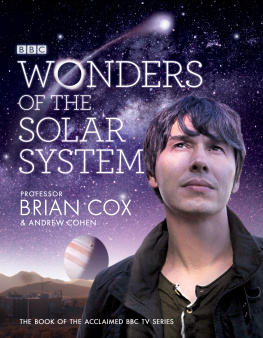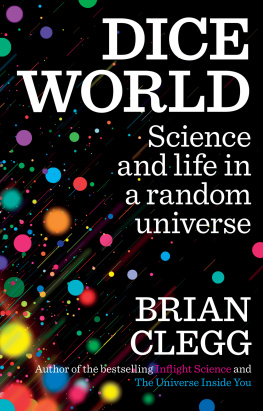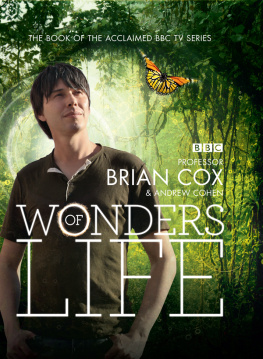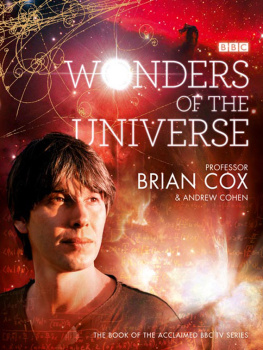As ever with a book of this kind, there are dozens of people to thank: Christina I couldnt do it without you, thanks for letting me be a grump when I need to be; Mum and Dad, for watching his shows even if you didnt understand them; John Blake and Allie Collins for asking in the first place and for their guidance; and all my other friends, who chivvied me along and didnt look too bored when I espoused a fact Id learned. For lending help and providing material: Mick Taylor, youre a legend; Colin Paterson and Elizabeth Alker, my northern correspondents; Anwar Brett, appreciate the delve into the archives and Tim Haughton, thanks for your superlative memory. Gregg LaGambina and Tasha Robinson from The A.V. Club, Andrew N. Holding from Skeptics in the Pub, Cambridge, Catherine Gerbrands and The Stage newspaper, Darren Rea from sci-fi-online.com, Brian Clegg of Popularscience.co.uk, Universetoday.com and Nancy Atkinson, the Press Association and Roger Crow you all rule. And last, but not least, the incredible people who either let me talk to them or pointed me in the right direction: Amanda Groom, who went above and beyond; Professor John Dainton, Professor Paddy Regan, Imran Khan, Tony Steel, Ali Paterson, Joey Tempest, Sara Webb, Julie Dawn Cole, Alan Franks, Ian Willetts, Victoria Asare-Archer, Claire Bithell, Petri Lunden, Jude Rogers, John McKie, Andy Welch and Alex Hardy you made this a story worth telling. Nikki Kennedy, I love your legal mind, and thanks to the dim sum place opposite Manchester University for sheltering me from the rain. And finally a big thank you to Gia Milinovich and Professor Brian Cox interesting, intelligent people who will no doubt write their own stories one day. I hope this may at least act as a memory-jogger.
T heres not an arm-patch in sight. Instead, a young-looking man with a mop of black hair settles comfortably in a chair on the stage of the Royal Festival Hall in London, bespectacled colleague to his left. Hes wearing a grey T-shirt, black jacket and trainers the trousers, of course, black. The whoops die down. Thats right, there was whooping when these two men in their early forties walked casually onto the stage in front of 2,500 paying spectators, who had come to hear them talk about quantum physics. Its an eclectic crowd young, old, male, female not the fusty audience you might expect for what amounts to a discussion about two-slit theory and how its possible for a particle to skip to any part of the universe in a heartbeat. Personally, I struggle to understand what theyre talking about, but then I gladly gave up science at GCSE. Its not that I dont appreciate the subject, its simply my brain is not equipped to deal with these kinds of concepts.
Professor Brian Cox, for it is he beneath the floppy black fringe (though thin strips of grey are beginning to poke through), believes anyone can understand the basics of quantum mechanics with a bit of application and over the next 45 minutes, he and his colleague, Professor Jeff Forshaw, try to do just that. It probably works for some people; it doesnt for me. But whether they understand it or not, the packed house is on the edge of their seats. When Cox opens up the floor to Q&A after their lecture, hands shoot up so quickly and strenuously they are practically wrenched out of their sockets. For the most part, he answers the questions patiently, stopping to rant about how angry he gets when scientists are equated to an interest group, to make fun of the way he sometimes speaks on television and occasionally gives short shrift to someone, like the man who earnestly enquires about a true vacuum and whether its possible to create one. The answer, says Cox, is no. Though one person does request tips on seeing the Northern Lights, no one asks if they can marry him, or have his babies, or have him sign their breasts at least not out loud. But as he stands in his familiar way, legs fairly wide apart as he clarifies a point on a large teachers notepad, its clear that Professor Brian Cox is without doubt the most famous and celebrated scientist in Great Britain right now and possibly of the last 10 years.
The funny thing is, its not because of something hes discovered, or because of the Nobel Prize he won. Instead, Cox labelled jokily by his friends as the Peter Andre of particle physics has become as famous as he is because of his ability to communicate science. His 2010 BBC series Wonders of the Solar System averaged a staggering 5 million viewers a week, while the 2011 follow-up, Wonders of the Universe, did even better, with an audience of 6 million viewers a week. Because of this, hes mentioned in the same breath as Sir Patrick Moore, or Sir David Attenborough science presenters who have captured the zeitgeist. A particle physicist by trade, Cox is also a professor at Manchester University, where he completed his doctorate, as well as a Royal Society University Research Fellow. He has worked on the H1 project at HERA accelerator in Hamburg, a predecessor to his current official job as a researcher on the ATLAS experiment at the Large Hadron Collider at the European Organisation for Nuclear Research (CERN) in Geneva, Switzerland. And he has also published a number of successful academic papers in addition to six books. In other words, he really knows his stuff.
Yet theres another reason why Cox is so comfortable on stage at the Royal Festival Hall. His past life includes stints in the chart-topping band D:Ream, as well as the rock band Dare, playing keyboards on tours around the world and on BBCs Top of the Pops. David Attenborough cant say he was in the band at the Labour Party election victory bash of 1997, nor can he lay claim to being one of People magazines Sexiest Men Alive, a poll in which Cox was included in 2009. Furthermore, hes universally considered a nice guy. If youre looking for tales of drug abuse, broken hearts and plates thrown at assistants, you wont find them here. Try as I might and for the sake of balance I did try I couldnt find anyone who questioned his integrity or personality, though some took issue with his screen presence, while others showed disgruntlement at his ubiquity.
All this and more will be examined here, including several exclusive interviews with those who knew Cox as a student at Oldham Hulme Grammar School, a post-graduate student in Germany, a big-haired rocker behind the keys onstage at Maple Squash Club in Oldham and beyond. Although he hasnt participated in this book, there are exclusive, never-before-seen quotes from the man himself. I interviewed him just before he became really famous in February 2010 when he was starting to promote Wonders of the Solar System. According to my emails, he was very difficult to pin down, his insanely busy schedule and desire to do it all already proving tricky to manage. I finally managed to contact him at his house in Battersea, where via an occasionally poor phone line (not sure why when it was just across the river in London, shouldnt he be able to fix it?), he talked with passion about his programmes and future plans.
Though I knew little about him, I was already intrigued as to how someone who has been hired as a professional scientist rather than a professional presenter finds time to ensure he maintains his academic credentials and whether he senses resentment from within his own community. Im fairly sure its accepted now that someone needs to [do these sorts of programmes], he told me. Were always having funding crises one way or another and were always fighting for public and governmental support. Its changed over the last 10 years and its widely accepted that some people have to do it. As long as you have a small number, it works. Still, he continued: I think the reason youre valued on TV or writing articles is becauseyoure a scientist and have a particular way of looking at the world, or an attitude that comes from being a research scientist. I think if you lose it, you become less good at presenting it.

